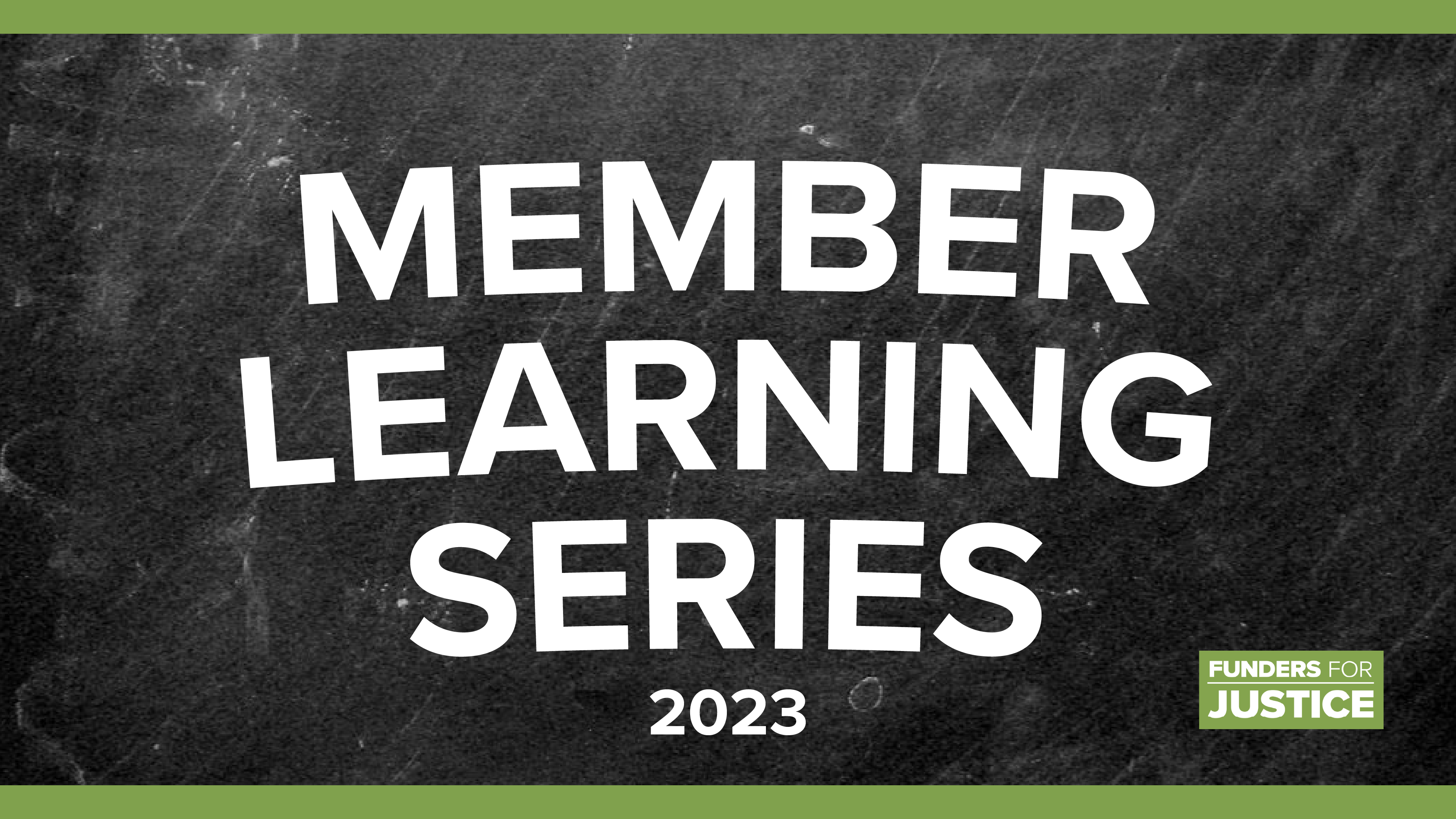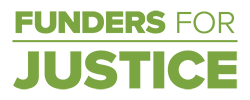
Over the past few years, FFJ members have expressed a need for introductory learning and training sessions to support their own education and that of their colleagues on the specific issues areas we focus on at FFJ. Our member learning series is designed for people who have no previous experience with the topic, and are simply coming eager to learn; experienced folks are also welcome to participate for a refresher. We welcome staff, board members, grants panelists, and donors of grant-making institutions, donor networks, and funder affinity groups. Below you’ll find a list of all of our Member Learning Series’ that took place in 2023.
FFJ Member Monthly Learning Series: Intro to PIC Abolition
Facilitated by Rachel Herzing, Program Officer at Wellspring Philanthropic Fund.
Description:Many of FFJ’s members and funders in our broader network have expressed a desire to learn about the framework, history, and real-world application of abolition. Whether national or local portfolios, grassroots, grass-tops, or neither, more and more organizations are identifying their work as abolitionist. Grant-makers, donors, and funder/donor networks are eager to understand how this applies to their grant-making. Join us for an Intro to PIC Abolition training with Rachel Herzing, co-founder of Critical Resistance and current Program Officer at Wellspring Philanthropic Fund.
FFJ Member Monthly Learning Series: Intro to Divest/Invest
Facilitated by Kung Li, longtime movement strategist and lawyer, and author of Begin the World Over.
Description: Many of FFJ’s members and funders in our broader network have expressed a desire to learn about the framework and real-world application of divest/invest. This is the third installment in our Member Learning Series. Join us for an Intro to Divest/Invest training with Kung Li, long-time movement strategist and lawyer, and the original author of FFJ’s divest/invest online learning tool for funders: https://divest-ffj.org/.
FFJ Member Monthly Learning Series: Crimmigration 101
Facilitated by: Silky Shah, Executive Director of Detention Watch Network.
Description: Co-Sponsored with Grantmakers Concerned with Immigrants and Refugees (GCIR), this session will be an introductory course on immigrant criminalization facilitated by: Silky Shah, Executive Director of Detention Watch Network. This is the fourth installment of our member learning series.
FFJ Member Monthly Learning Series: Eroding the Power of Police Unions 101
Facilitated by Jeree Thomas, Director, Communities Transforming Policing Fund at Borealis Philanthropy, Ken Chapman, Director at Democratizing Justice Initiative, and a will feature a discussion with one of FFJ’s Movement Advisors, Hairo Cortes, Executive Director at Chispa.
Description: This session will be an introductory course on police unions and associations. We’ll explore their history, purpose, how they function and their landscape of influence. Police unions are an issue across all social change that communities and philanthropy care about, and this session will illustrate how they have taken over the criminal justice policy and budget making process across the nation.
FFJ Member Monthly Learning Series: Eroding the Power of Police Unions 101 Pt. 2 – Police Unions and the Labor Movement
FFJ Member Monthly Learning Series: Introduction to Healing Justice – Funding the HEART of our Movements
Facilitated by Emanuel Brown, Executive Director of Acorn Center for Restoration and Freedom and FFJ Movement Advisor
FFJ Member Monthly Learning Series – This ain’t the Love Boat: Transformative Relationships for Abolitionists
Facilitated by Ignacio Rivera of HEAL Project and FFJ Movement Advisor
The murders of George Floyd, Breonna Taylor, Tony, McDade and other recent forms of state violence revealed once again how incapable our current systems are of protecting life and creating safe communities. As prison and police abolition hit the mainstream as necessary alternatives, it’s important to remember that abolitionist work must also happen in our everyday engagement with others. Abolition is a way of life and a collective approach to social change. Engaging with abolition on an interpersonal level includes fighting against carceral logic, integrating accountability into your response, and affirming community support.
